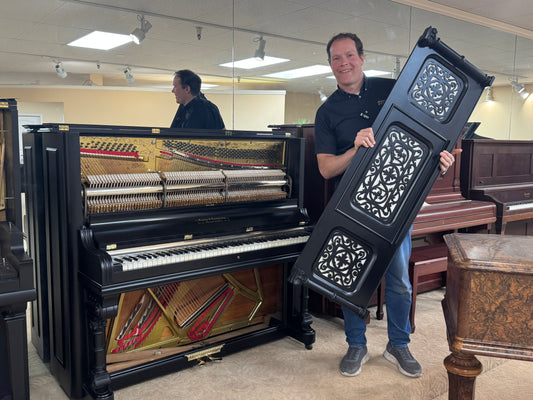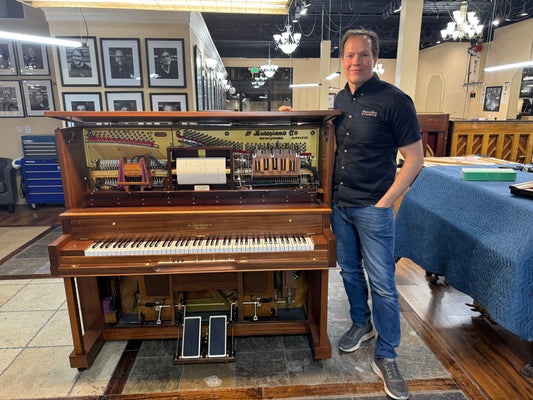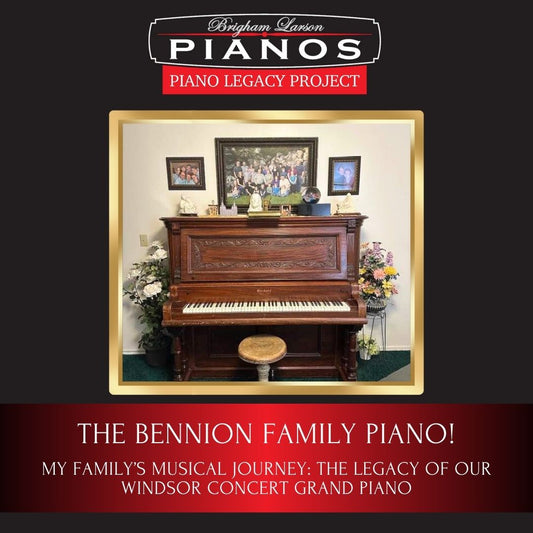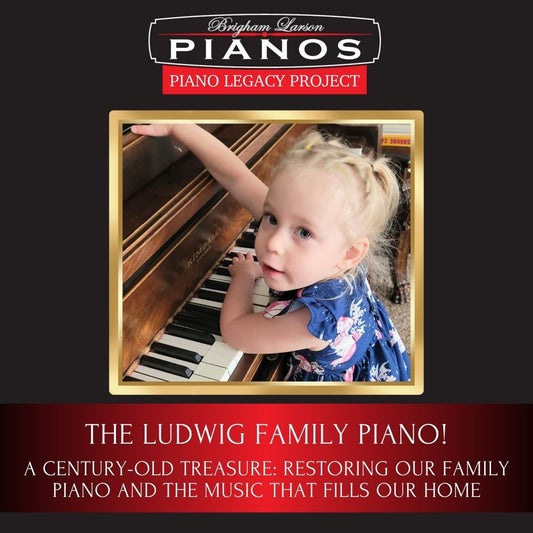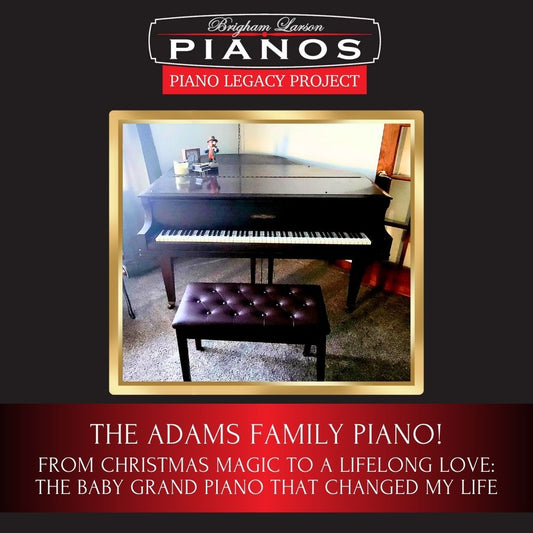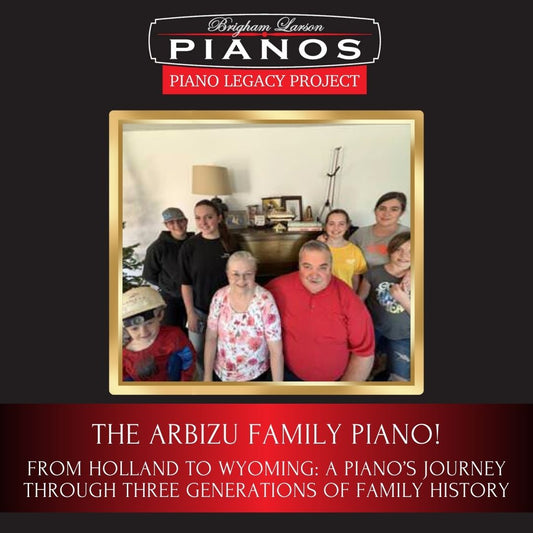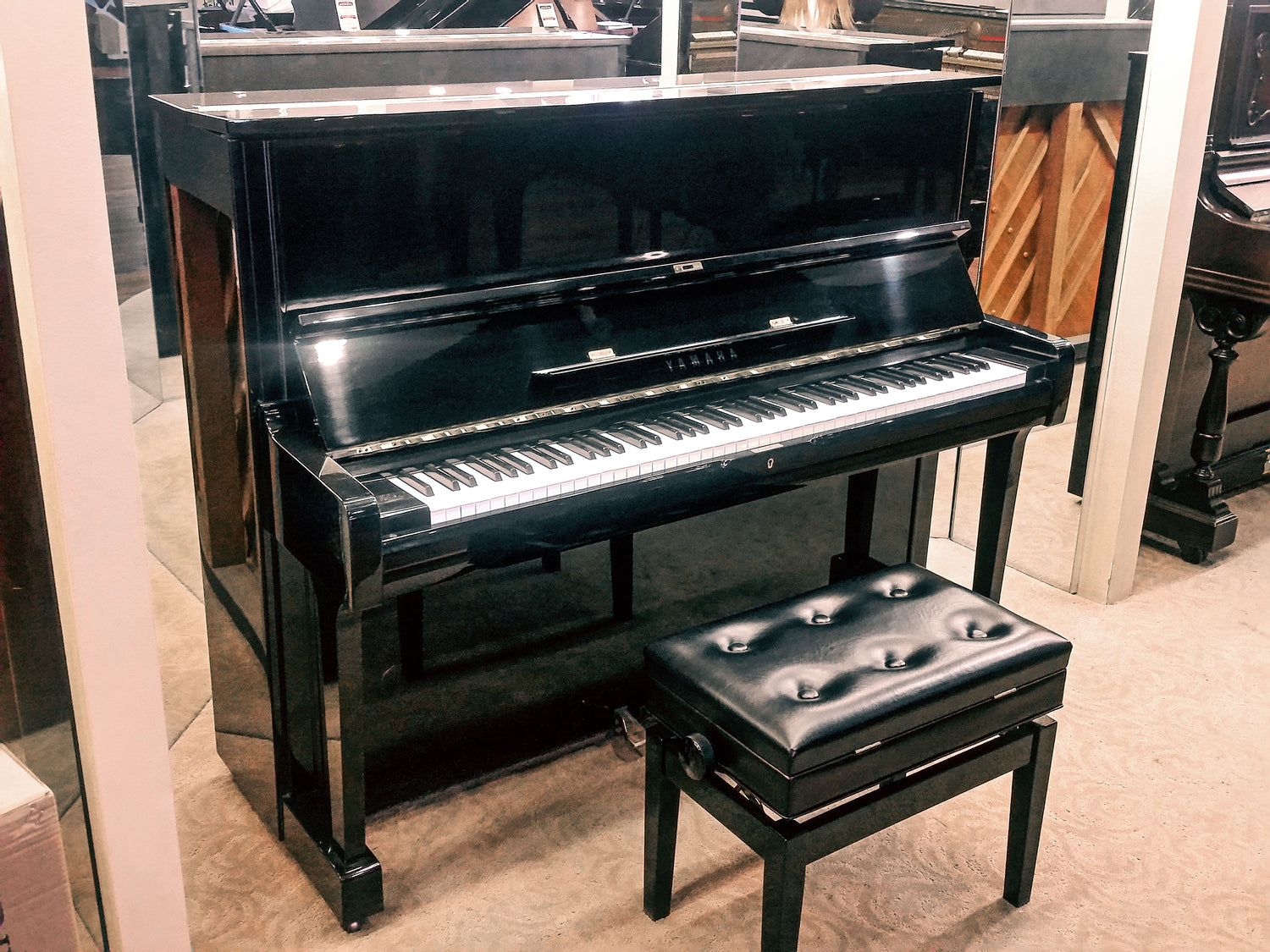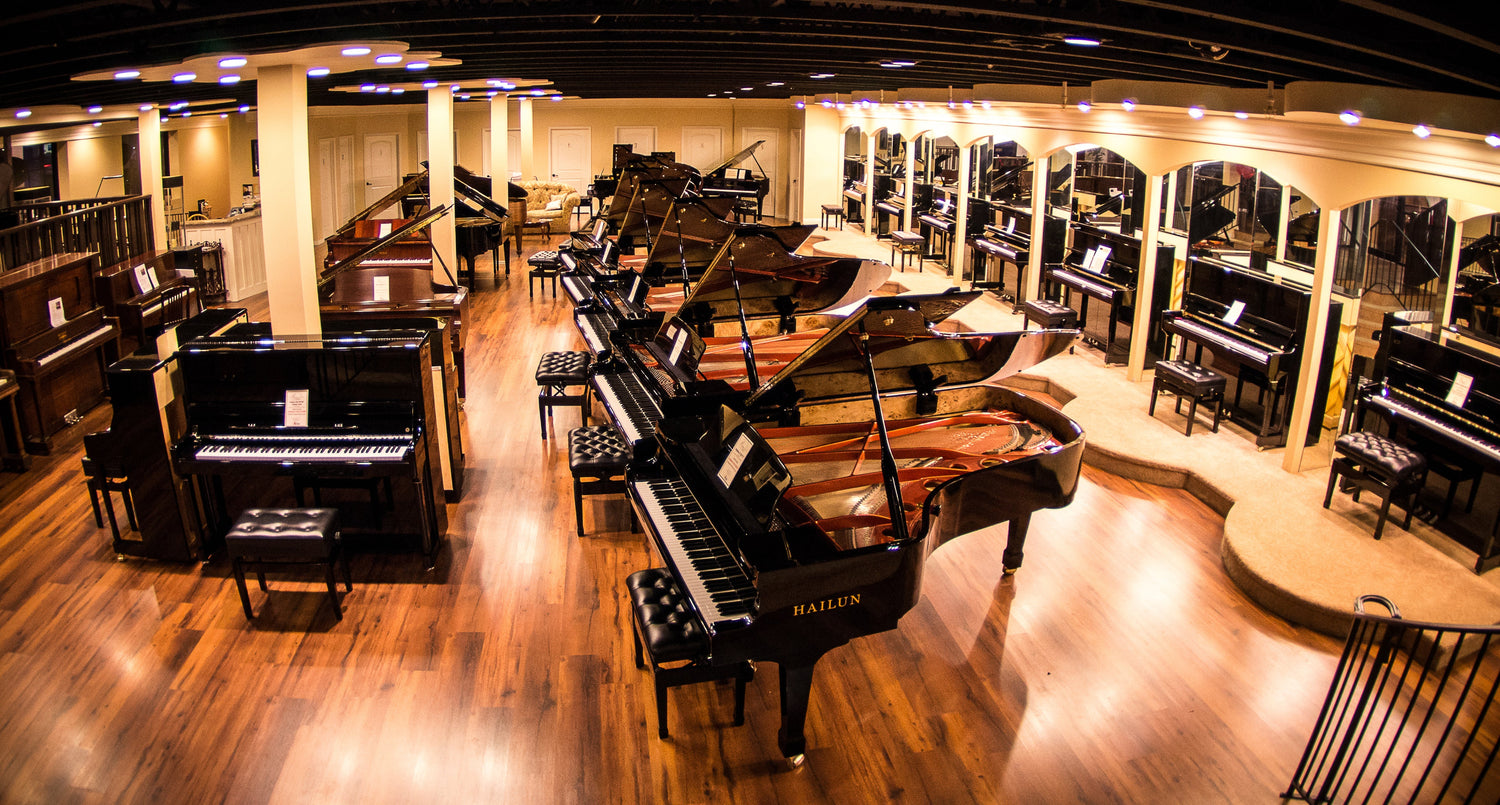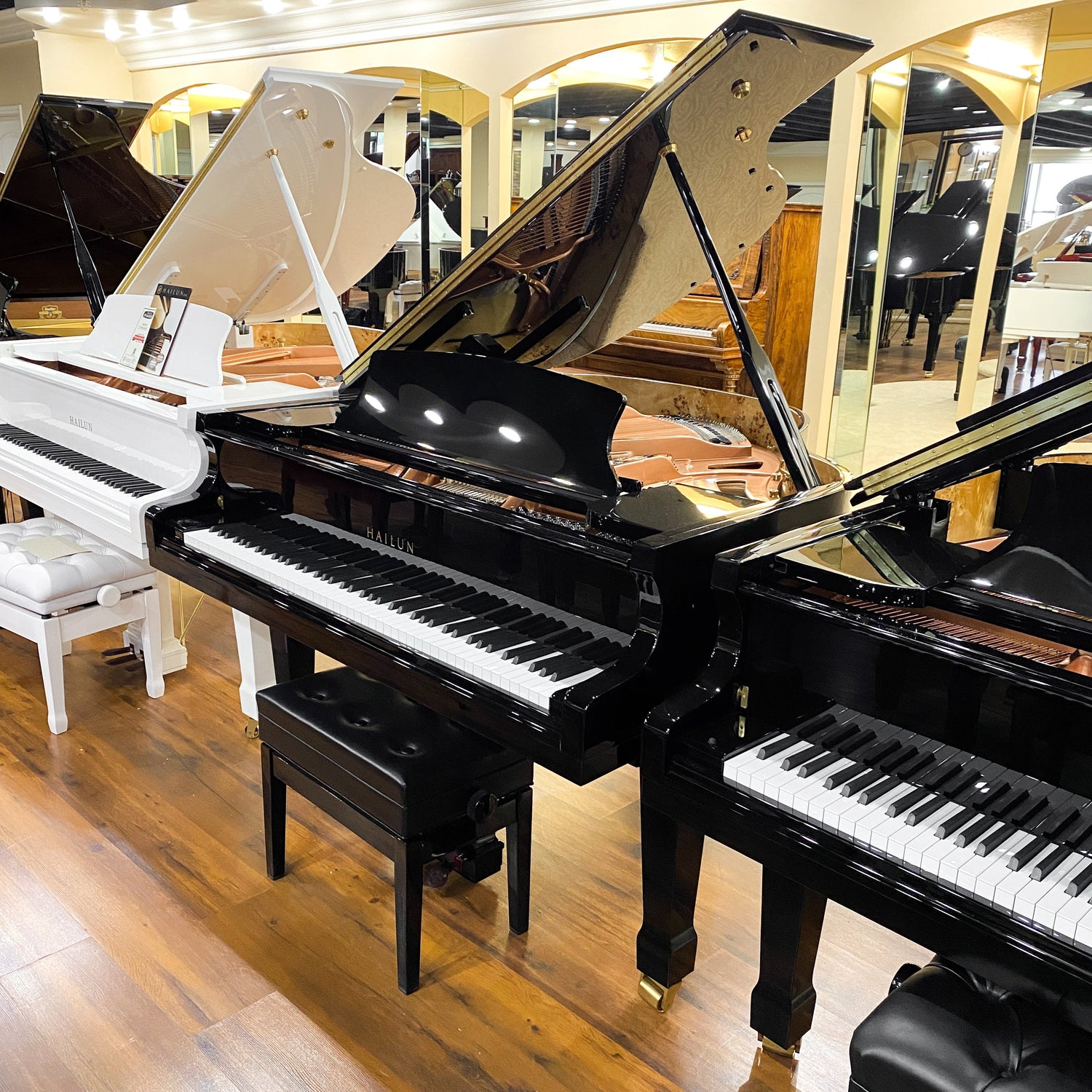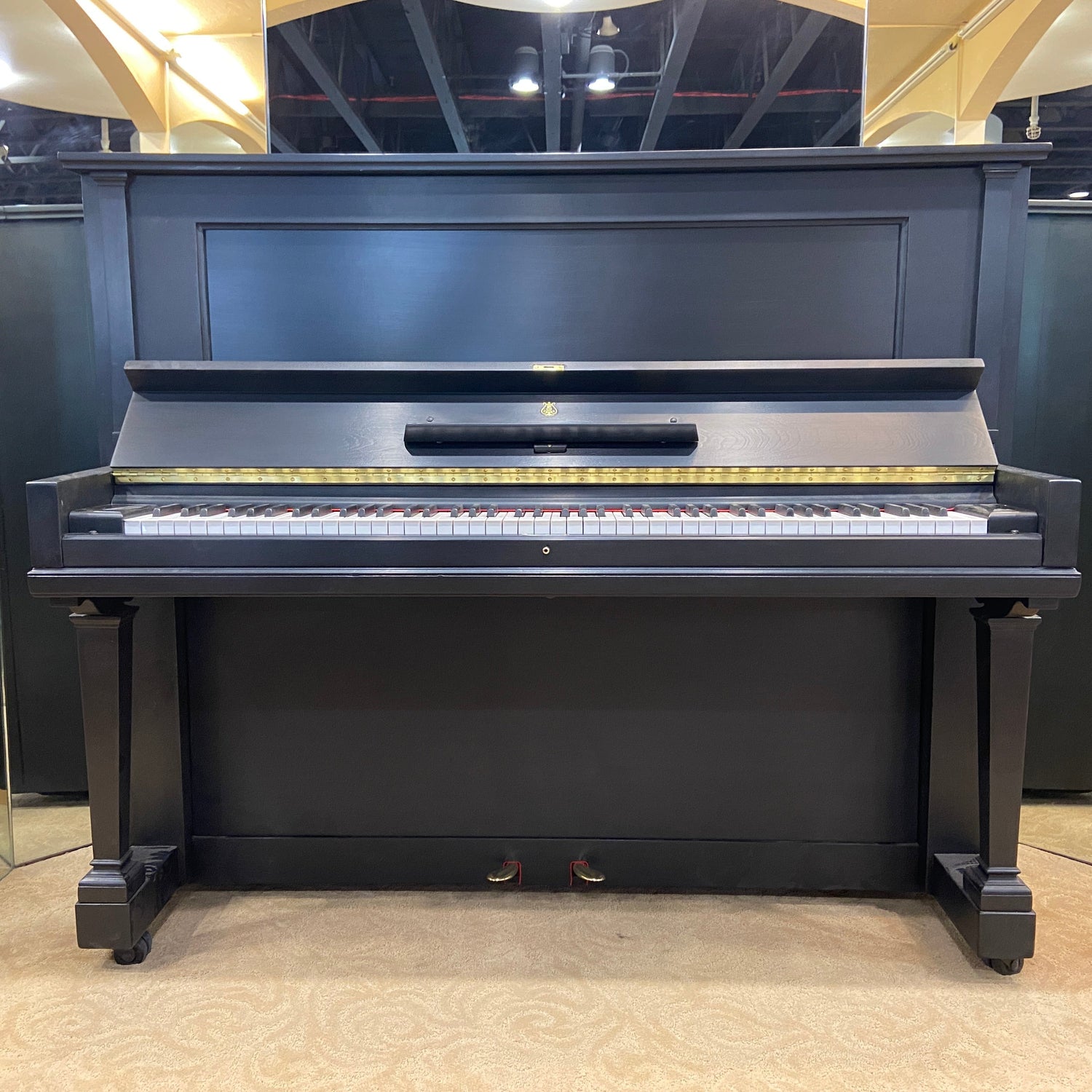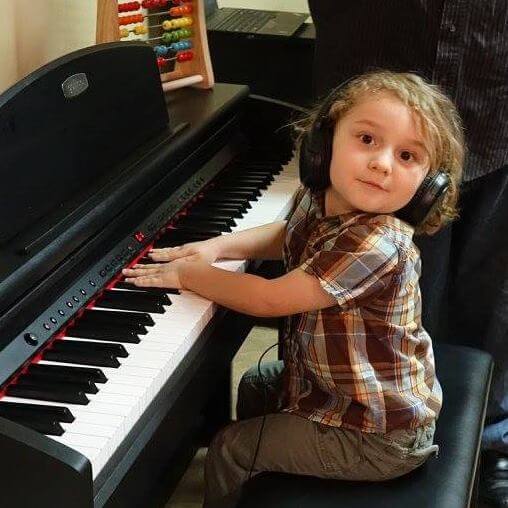
What's the Best Age to Start Piano Lessons?
Karmel LarsonShare
This is a question we get asked a ton! Parents always want to know what is the best age to start piano.
The bottom line is that there isn't one right answer. The BEST age to start piano lessons will be different for every child. In this blog post, we shared some qualitative ways to determine whether a child is ready for lessons. Today we want to take a slightly different angle and share some pros and cons of starting at various ages. Take a look at these ideas and let us know what you think!
Age 4-5: Preschool students
Pros:
Many children begin to show interest in the piano at this age. A child's intrinsic interest (in any activity) is a good indicator that they are ready to learn more about it.
Starting young allows for great practice habits to be established before adding the pressures of schoolwork or other activities. If a child already likes piano, he or she is more likely to continue it even when he has more to do.
The young brain is developing a TON during this period - and music training can accelerate it even faster!
Cons:
Children who haven't yet attended school may have a harder time with structured learning.
Some children at this age need a little more time to let their hands grow and their fine motor skills develop before they're ready for piano.
Age 6-8: Young School-Age Children
Pros:
At this point, most children are starting to become fluent readers. This will help them when reading instructions - either the teacher's or from a book if the teacher is using a method.
After a year or two of school, kids are used to structured, adult-led learning. Following verbal directions will be a little easier than for preschool children.
Most students are physically ready to take on piano lessons in terms of hand size and finger dexterity, if they weren't at age 4-5.
Cons:
Starting piano around the same time that school starts can be a big adjustment for some kids.
By age 8, kids are starting to have daily homework and other activities that can make practicing habits harder to establish.
Age 9-12: Preteens
Pros:
At this point, most students are comfortable with reading written language, so the abstractness of musical notation makes a little more sense.
Kids at this age have probably been exposed to more types of music in their daily lives and will be able to make more connections between what they already know and what they learn in piano lessons.
Most kids in this group will be able to practice on their own with just a little bit of oversight from a parent or practice tutor.
Cons:
Preteens are approaching the age where the opinion of their peers matters a lot. If their friends don't think piano is "cool," they're less likely to want to continue.
Getting in regular practice requires more effort and careful planning.
Ages 13-18: Teenagers
Pros:
The junior high or high school student has had lots of experience with learning in general. They'll usually pick up concepts more quickly than younger students.
School music classes up to this point can provide a foundation for piano lessons and reinforce what they are learning. (Even more so for students who are in band, choir, or orchestra at school!)
Teens will be able to bring more ideas to the table and can direct their own learning a little more with a supportive teacher.
Cons:
Teenagers are especially conscious of what others think of them. If they struggle at first with learning to coordinate their hands, eyes, and brains, they may become discouraged and want to quit.
This group has the most demands on their time of any of these groups - school, work, extracurriculars, and social events make practicing harder to schedule.
Age 19+ (Is it ever too late to learn piano?)
The answer to this question is a firm NO! We believe that anyone who's willing to work for it can learn to play the piano. Like starting at any other age, there are some distinct advantages and disadvantages.
Pros:
As an adult, you have a lot of say in what you learn at piano lessons. Most teachers are willing to be more flexible about lesson structure with adults than with children.
Children sometimes struggle to focus through a practice session or give up when it gets difficult. Adult students have more patience and persistence, as well as the perspective to know that daily practice is essential for progress, so it's easier to get through difficult pieces or concepts.
Learning to play the piano can be a great stress release and a form of self-care. Adults need this just as much, if not more, than children and teens.
Cons:
Some research suggests that it is easier to learn music at a younger age (similar to learning a language, it may come faster to younger students). Some aspects of playing the piano may be more difficult for adults.
Most adults are used to being good at things - school, jobs, other hobbies, etc. Starting as a beginner can be intimidating at first.
So what?
Learning to play the piano is an incredibly rewarding experience. It won't always be easy, but the benefits of piano lessons stretch far beyond just being able to play a handful of pieces! So when people ask us what's the best age to start piano lessons, our answer will be: As soon as you're ready!


